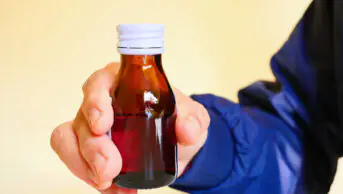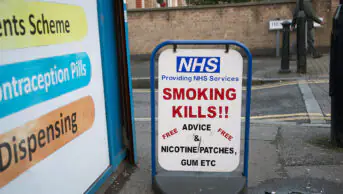
Mclean/Shutterstock.com
I’m a GP, but I didn’t start my career as one — I qualified as a pharmacist in the late 1990s and worked in community pharmacy. I loved the interaction I had with the public there.
As a pharmacist, I was readily available and I particularly enjoyed responding to my patients’ symptoms by advising them on over-the-counter (OTC) medicines. But I felt my expertise in medicines could offer more to patients — I just didn’t have the opportunity to use it. The range of medicines that could be prescribed over the counter were limited, and referring patients to their GPs often left me frustrated.
After a few years, however, pharmacists were becoming more involved with local GP practices. For example, one of my pharmacist colleagues ran smoking cessation clinics in our local GP practice. I also witnessed the expansion of OTC medicines, which gave pharmacists more opportunity to manage more conditions.
Nevertheless, I spent a lot of my time in the dispensary checking and dispensing medicines. At that time, I felt pharmacy couldn’t provide the more clinically orientated career I coveted. In 1999, I began studying medicine with the aim to become a GP. I continued to work as a community pharmacist throughout my studies. After I qualified as a doctor, I relinquished my registration.
Pharmacists play an essential part in the practice team. I could not imagine GP life without their work
Since then, I have always kept my eye on pharmacy: I have watched as pharmacists have become increasingly involved in healthcare in the community. I have seen the consultation room become a permanent fixture of community pharmacies. Pharmacists have also started conducting medication use reviews, as well as giving flu vaccinations — it was the rise of the ‘clinical pharmacist’.
As a GP, I can see huge benefits of working alongside pharmacists, both for patients and the practice. It has improved access for patients to see the right expert.
I was once a partner in a practice with more than 6,000 patients, many of whom were on repeat medication and needed a medication review at least once a year. Typically, these reviews were given by GPs, often in a consultation the patient was attending for an unrelated matter: these reviews were often brief and rushed.
Clinical pharmacists, however, offer structured medication reviews, improving patients’ understanding of their medications and reduced waste. This is especially important for patients in residential and nursing homes, who are often older and taking multiple medications. And these reviews give additional help to patients and the practice to manage long-term conditions. The support provided by pharmacists frees up a significant amount of GP time.
I really appreciated the support, especially because, as a duty GP, you are bombarded with all sorts of urgent tasks within the practice. Pharmacists improve patient safety too: they can act swiftly on alerts from the medicines regulator and disseminate information. This important role allows practices to meet the regulatory requirements by the Care Quality Commission (CQC). As a CQC specialist advisor — a role I’ve been in since 2018 — this robust system of dealing with alerts makes reviewing this information during an inspection a lot easier, and practices safer.
Pharmacists can also help GP surgery reception staff become more knowledgeable on medicines, which can certainly reduce clinicians’ workload. The pharmacists have trained our reception staff on the electronic prescribing service and drafted some steps for practice staff to follow — all improving the quality of care.
Pharmacists play an essential part in the practice team. I could not imagine GP life without their work.
Pharmacy has changed since I left the profession: there is now a structured training programme for pharmacists to become independent prescribers, which could help some find career satisfaction and progression.
It is heartwarming to see clinical commissioning groups, primary care networks and NHS England support pharmacists to use their expertise, and I am so pleased to see my local medicines management team expanding to employ increasing numbers of clinical pharmacists.
And the 2019 launch of the ‘NHS community pharmacist consultation service’, which sees general practice refer to pharmacies, marks a big step for pharmacy. At last, recognition of pharmacists’ expertise and care for patients is steadily growing — and may it keep growing.
Mohammad Ali, sessional GP, South Yorkshire; GP specialist adviser, Care Quality Commission


